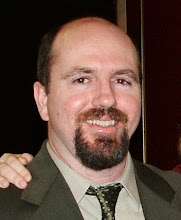Early in this winter of 1864 a teen-ager in upstate New York enlisted in a battery of field artillery--a veteran battery on duty in Virginia which had sent back for a few replacements--and to his amazement as soon as he had signed the papers he was put in a penitentiar building at Albany, the army having chosen this place as the only suitable spot for its new recruits. He found approximately a thousand draftees and bounty-jumpers there, closely guarded by double lines of sentinels, and he appears to have been about the only man in the lot who had joined up for love of country.
"If there was a man in all that shameless crew who had enlisted from patriotic motives, I did not see him," he wrote afterward. "There was not a man of them who was not eager to run away, not a man who did not quake when he thought of the front. Almost to a man they were bullies and cowards, and almost to a man they belonged to the criminal classes."
Catton goes on to describe how 600 of those men were shipped down to the AoP. In separate incidents, fourteen men attempted to run, and were shot dead by the guards. Once with the army, these men were a drain on resources, and a corrupting influence on camp life.
At the same time these dregs were being brought into the army, the officers were trying to convince their veterans to re-enlist. It was tough sledding, because the men felt that they had put in their time and were entitled to go home. They were damned lucky to be alive and in one piece, so why tempt fate when they could go home with no dishonor? Many of them did choose to stay, though: 26,767 of them.
A company in the 19th Massachusetts was called together to talk things over. The regiment had left most of its men on various battlefields, in hospitals, and in Southern prison camps, and this company now mustered just thirteen men and one wounded officer. These considered the matter, and one man finally said: "They use a man here just the same as they do a turkey at a shooting match, fire at it all day long and if they don't kill it raffle it off in the evening; so with us, if they can't kill you in three years, they want you for three more--but I will stay." And a comrade spoke up: "Well, if new men won't finish the job, old men must, and as long as Uncle Sam wants a man, here is Ben Falls."
The regiment's historian, recording this remark, pointed out
that Ben Falls was killed two months later in battle at Spotsylvania Court House.
Those 26,767 men fill me with wonder. The casualty rates in that war were absolutely atrocious. There were many regiments that lost more than half their men in a single engagement. Who could go back to that charnel house when he had a perfectly honorable out? It must take a depth of courage that I have never had to plumb. Thank god.
Which leads me on to some other thoughts...
'Chickenhawk' has become a popular epithet among the internet activists of the left. It is supposed to be the magic word that shuts up the opposition. It is a bogus argument, of course. Moreover, I do not think much of men calling other men cowards when their political opinions automatically let them off the hook from serving in the military. Perhaps there is some cause that they would enlist to fight for, but I haven't seen it mentioned.
Still, there is this much truth in what they say: If I were still young enough to join the fighting (I'm 42 now), and I were too afraid to go, I would not feel very good about myself. I'm not smug enough to beat my chest now and say, "Hell yeah, I'd go if I could!" It's too easy a thing to say when you don't have to prove it.
Nonetheless, I don't have to prove it in order to voice my opinion about whether we should fight or not. The men who signed up, for good or ill, put themselves under the command of the President and the Congress, who in turn answer to the people. To say that civilians cannot decide when the country ought to go to war is like saying we cannot tell the police to enforce the laws. That's their job, and it's what they signed up to do. Our responsibility--and it's an important one--is to make sure that we make just laws for the police to enforce, and only send our soldiers to fight for the defense of this country. That latter question, of course, is what the debate hinges on, and it is only by addressing that issue that the opponents of the war can hope to win the debate. Calling people chickenhawks gets them nothing.


No comments:
Post a Comment